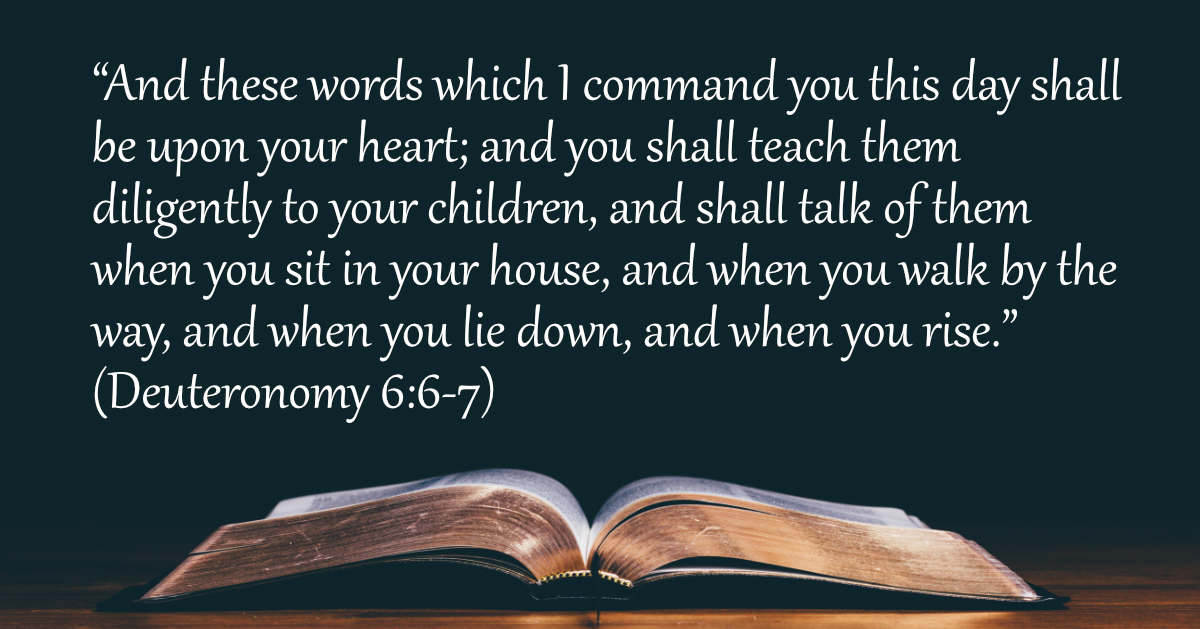
This passage, drawn from Deuteronomy 6:6-7 , reveals the profound responsibility and joy of keeping God’s Word at the very center of our lives. It calls us to embed His commandments within our hearts, shaping our thoughts, actions, and conversations every moment of every day. As we sit in our homes, walk along life’s paths, rise in the morning, and rest at night, our lives become living testimonies of His truth. By teaching diligently and speaking of His Word at every opportunity, we foster not only our spiritual growth but also that of those entrusted to us, particularly our children.
This passage urges us to make the Word of God more than a Sunday ritual—it should be the rhythm of our lives. Just as we breathe without thought, so must we immerse ourselves in His teachings, allowing them to guide us in decision-making, inspire us in difficulties, and fill us with hope and wisdom. The commitment to this practice has eternal benefits; it deepens our relationship with God today and aligns us with His purpose, ensuring everlasting fellowship with Him.
Supporting Scriptures:
- Psalm 119:11 (ESV) – “I have stored up your word in my heart, that I might not sin against you.”
- Proverbs 22:6 (ESV) – “Train up a child in the way he should go; even when he is old he will not depart from it.”
- Colossians 3:16 (ESV) – “Let the word of Christ dwell in you richly, teaching and admonishing one another in all wisdom.”
Moral Thoughts and Takeaways:
- God’s Word is more than a guide—it’s a lifeline, a source of strength, clarity, and peace.
- Our homes and our hearts should reflect His presence, creating an atmosphere of love and learning.
- The benefits of a life rooted in God’s Word are immeasurable, bringing us daily joy and equipping us for eternity.
Reflective Questions:
- How often do I allow God’s Word to shape my decisions and attitudes?
- Am I creating opportunities to teach and discuss God’s truth with those around me?
- What steps can I take to ensure that His commandments remain central in every aspect of my life?
Biblical Analysis Overview: This passage belongs to the Shema, a central declaration of the faith of Israel, emphasizing love for God and obedience to His Word. It highlights not only personal devotion but also communal responsibility. The command to teach children reflects the generational blessing of faithfulness, anchoring future generations in God’s truth.
Practical Application as Christians: We can incorporate these principles into our daily lives by:
- Beginning each day with scripture and prayer.
- Sharing meaningful biblical reflections with family or friends during meals or casual conversations.
- Keeping visible reminders of God’s Word, such as scripture art or note cards, in our homes and workplaces.
- Modeling Christ-like behavior in our interactions with others.
Prayer: Heavenly Father, we thank You for Your Word that gives life, wisdom, and guidance. Help us to treasure it in our hearts and weave it into every moment of our lives. Grant us the diligence to teach Your commandments to others, especially our children, and the courage to walk in Your ways at all times. May we be lights in the world, reflecting Your truth and love to all we encounter. In Jesus’ name, Amen.
Scripture to Meditate On:
Your word is a lamp to my feet and a light to my path. – Psalm 119:105 (ESV)
Blessing for the Reader:
May God’s Word dwell richly in your heart, guiding your steps and filling you with His peace and joy. May your life bear abundant fruit, and may His promises bring you strength today and a glorious hope for eternity. Amen.

 Follow
Follow